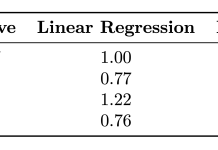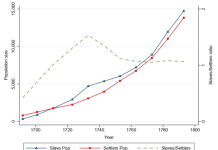Open Access Government produces compelling and informative news, publications, eBooks, and academic research articles for the public and private sector looking at health, diseases & conditions, workplace, research & innovation, digital transformation, government policy, environment, agriculture, energy, transport and more.
Home 2026
Archives
Longitudinal Educational Achievements: Reducing Inequalities (LEARN) Project
Paula Sergeant from Manchester Metropolitan University and Doris Hanappi from University of Zurich present the Longitudinal Educational Achievements: Reducing Inequalities (LEARN) Project.
Navigating uncertainty: How advanced forecasting builds resilient institutions
Dr Yves R. Sagaert emphasizes the importance of organizations shifting away from traditional static budgeting, which relies on historical trends. He advocates adopting predictive AI and advanced forecasting as essential strategic tools for both governments and businesses to proactively adapt to uncertainties in their environments.
Could the mind sport bridge provide much-needed social connection in the digital age?
A third of young people in the UK experience loneliness linked to screen use. Bridge: A MindSport for All (BAMSA) asks: Could the mind sport bridge provide the much-needed social connection in the Digital Age?
The politics of rights and marginalised groups: Towards critical awareness
Kati Rantala offers a thorough analysis of the politics surrounding rights and marginalised groups, fostering critical awareness.
Volunteering in rural and urban communities isn’t one-size-fits-all
Rebecca Nesbit and Laurie E. Paarlberg argue that volunteering cannot be a one-size-fits-all solution, as the experiences of rural and urban communities demonstrate.
Ancient greek heritage in (early modern) Europe
Natasha Constantinidou unpacks Ancient Greek heritage in (early modern) Europe through the project Greek Heritage in European Culture and Identity.
Business education at the crossroads: Transform or face irrelevance
The article, authored by Jean Garner Stead, calls for an urgent re-evaluation of business education to foster leaders capable of creating sustainable value in a rapidly changing world.
The medieval march of Wales: Welsh or English?
Professor Helen Fulton at the University of Bristol, examines the case study of the Medieval March of Wales, a vibrant multicultural border region between...
Collapse and persistence before 1713: Rethinking Khoekhoen political economy at the early Cape
Erik Green examines the complex interactions between the Khoekhoen and early European settlers, challenging conventional narratives of indigenous passivity and highlighting the resilience and agency of Khoe societies in the face of colonial pressures.
Afrikan studies and research in the human sciences
Discussing Afrikan studies, Kimani S. K. Nehusi highlights the importance of an Afrocentric perspective that positions Afrikans as active participants in their cultures and histories. He introduces the concept of the Afrikan Ancestral Land Complex (AALC), which includes the essential values, knowledge, and rituals that sustain Afrikan identity and community cohesion.
Paulo Freire, social justice, and the democratic possibilities of education
Stephanie Schneider from SUNY Old Westbury examines Paulo Freire’s fascinating work on social justice, and the democratic potential of education.
Stimulating women’s entrepreneurship in contexts of oppression
Applying insights from a recent article published in the Academy of Management Perspectives, Dr Jennifer Jennings discusses critical precursors to entrepreneurship for women living under oppressive conditions.
Deliberate structural injustice through law
Kati Rantala’s recent article on silent stakeholders addresses the dilemmas in normative inclusive lawmaking that often overlook harsh realities behind the rhetoric.(1) Here, she explores structural injustice in law and its impact on silent stakeholders in subordinate positions, citing examples from Finland.
Working toward fairer global scholarly communication
Angel Y. Ford at the University at Albany charts working toward a more just global landscape of research output valuation and dissemination.
Rethinking slavery at the Cape
Rethinking slavery at the Cape: Although slavery was common, the Cape was not a ‘slave economy’ in the strict sense, as it did not rely solely on slavery for economic surplus, according to Lund University’s Professor Erik Green.
Why aren’t schools teaching data science?
Nancy Butler Songer highlights the importance of data literacy skills for pre-university students. The Life Right Here and Everywhere Project aims to equip youth with essential data science skills, fostering confidence and addressing challenges in integrating data into lessons.
Harmony among civilizations: The influence of Chinese philosophy on Western idealism and contemporary revolutionary...
Germaine A. Hoston of the University of California, San Diego, demonstrates the influence of Neo-Confucianism on European idealism and Marxist revolutionary thought.
Human history: What’s most distinctive about humans as a species, viewed collectively?
What’s most distinctive about humans as a species, viewed collectively in human history? Penelope J. Corfield from the Royal Holloway, London University explores this critical question.
How EIT food fosters bioeconomy entrepreneurship: From policy to people – and back
Representatives of EIT Food Education discuss the importance of entrepreneurship education in advancing Europe’s bioeconomy, highlighting that a sustainable economy relies on bio-based solutions and overcoming skills gaps.
Democracy: From polarization to common ground
Jared Wesley, PhD, discusses how the Common Ground team at the University of Alberta helps individuals renew their commitment to decency and respect within democracies. This conversation addresses issues concerning political polarization and research on populism.





















